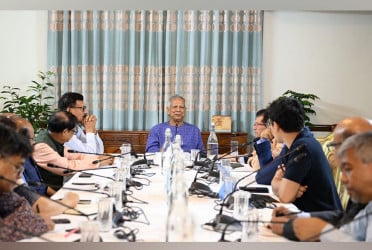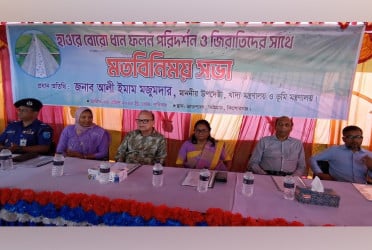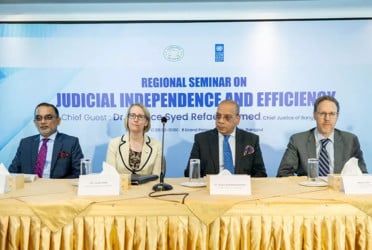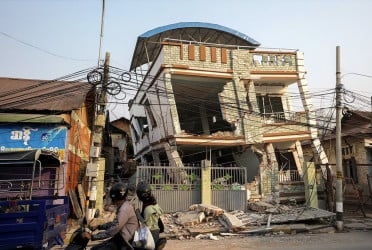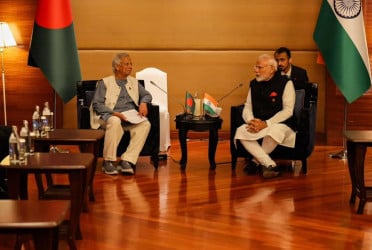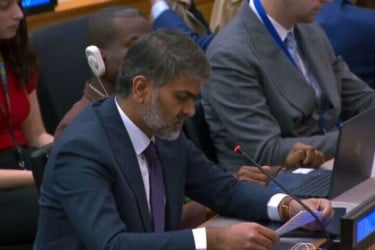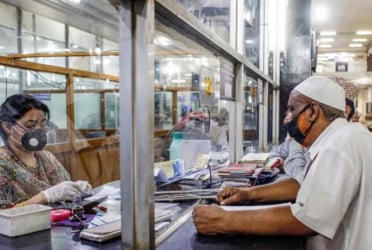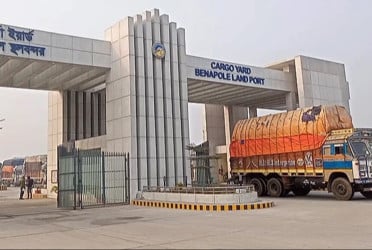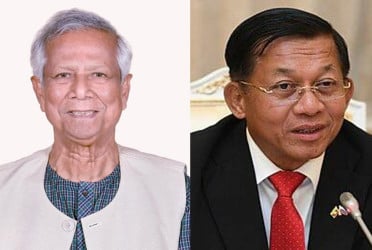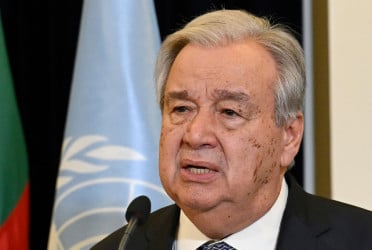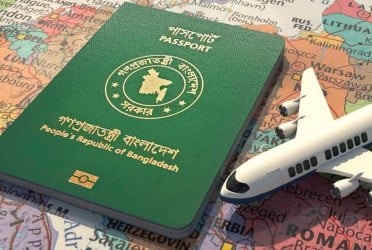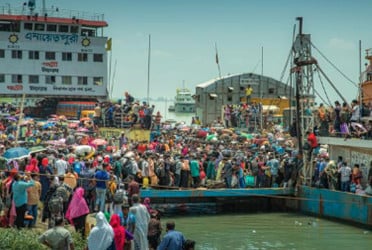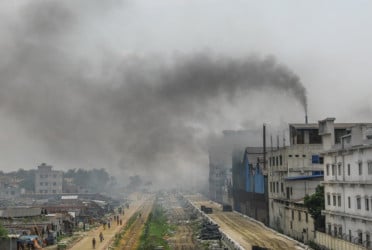Indian policymakers should be honest, pro-nature, and pragmatic enough to recognize the objectivity of Dr. Muhammad Yunus’s statement about the Seven Sisters rather than remain subjective, as they often tend to be when prioritizing the interests of vested groups like Adani and others seeking to maximize their control over shared regional resources. The ruling class of India appears indifferent to the prosperity of its own citizens, as highlighted by a recent study revealing that around one hundred crore people struggle to meet even minimal food intake requirements.
I am aware of Professor Yunus’s straightforward approach to diplomatic issues. The overly reactive stance of Indian policymakers and the public may, in the long run, prove counterproductive. The Chief Advisor and his team must prioritize a thorough review of the legality of all previous deals imposed by India on the now-deposed fascist regime, including the unrestricted access to the Bay of Bengal—a demand advocated by former diplomat Veena Sikri.
A significant number of Indian elites still believe they alone have the authority to manage South Asia’s natural resources and determine the fate of its people. However, the region’s development has historically been shaped not by existing or former geopolitical boundaries but by the mighty rivers and the Himalayas. Consequently, despite having the potential to become one of the world's most prosperous regions, SAARC has failed to achieve meaningful integration even after fifty years of India’s independence in 1947. In contrast, despite possessing fewer natural resources, East Asian nations have successfully established ASEAN, which stands as a model of cooperation and prosperity driven by enhanced connectivity and mutual respect for natural rights.
Why, after 75 years of independence, do the people of the Seven Sisters remain impoverished? Before 1947, the northeastern states had strong economic and administrative ties with what is now Bangladesh (formerly East Bengal). Partition disrupted long-standing trade networks, transportation routes, and cultural exchanges. Additionally, cultural affinities remain a reality—the region shares deep linguistic and traditional connections with Bangladesh, including Bengali, Assamese, and various indigenous customs. Sylhet, now a part of Bangladesh, was once part of Assam.
Every individual on this planet has the right to equitable access to natural resources. The Chief Advisor has emphasized the importance of regional integration and the promotion of people’s natural rights. The integration of the Seven Sisters (the northeastern states of India) with Bangladesh is a concept supported by historical, geographical, economic, and strategic considerations. Various perspectives, including regional connectivity, trade interactions, cultural affinities, and security concerns, reinforce this idea, though it remains a politically sensitive issue.
Furthermore, indigenous and tribal relations are a reality. Ethnic communities such as the Chakma, Khasi, Garo, and Tripuri reside on both sides of the border, maintaining strong cultural and familial ties. The artificial geographical division has effectively landlocked the Seven Sisters, forcing them to rely on narrow corridors like the Siliguri Corridor for trade. In contrast, Bangladesh provides a natural gateway to the Bay of Bengal via the Chittagong and Mongla ports. The people of Bangladesh are aware of the hospitality extended by marginalized communities in Tripura, and we have a moral obligation to reciprocate by sharing our prosperity. We would be pleased to host thousands of students and workers from the Seven Sisters, offering them access to education and better livelihood opportunities. Bangladesh has already accommodated millions of Rohingya refugees, while BJP’s vision of “Bharat” has refused to grant shelter to even a minimal number.
Deeper connectivity would reduce transport costs and boost trade, facilitating faster movement of goods and services. The Bangladeshi market offers significant financial opportunities to industries in Northeast India, particularly in agriculture, textiles, and tourism.
As for concerns about Chinese influence in the Seven Sisters, BJP supporters who exaggerate this issue should remember that around 30% of Adani’s investments are owned by Hong Kong-based Chinese conglomerates. Meanwhile, India has lost thousands of square miles of territory in Ladakh. Is Bangladesh responsible for that? In reality, increasing China’s influence in South Asia—especially from the northeastern direction—could be mitigated through enhanced connectivity between Northeast India and Bangladesh.
Regardless of geopolitical boundaries, every human being has the right to prosperity. Given the severe damage to ecosystems and the escalating risks of climate change, conserving natural resources is not optional but an obligation. Bangladesh has not only a moral but also a legal right to discuss economic and resource management issues concerning upstream countries like India and China. Indians who react with hostility must acknowledge that although Bangladesh constitutes only 7% of South Asia’s landmass, it carries 93% of the GBM (Ganges-Brahmaputra-Meghna) Basin’s water to the Bay of Bengal. As a result, approximately two-thirds of Bangladesh’s land is inundated by floods annually, with 70-80% of its population facing severe climate-related disasters.
The question remains: Has India or China ever responded positively to Bangladesh’s legitimate demands for an equitable share of the GBM Basin’s water? As a downstream nation, Bangladesh suffers the consequences of upstream pollution, including the dumping of plastics and toxic waste into the Ganges, Brahmaputra, and Meghna rivers. However, cooperative water management, particularly of the Brahmaputra, Barak, and Teesta rivers, could enhance hydroelectric power generation while reducing the risk of seasonal flooding. Bangladesh and Northeast India could collaborate on renewable energy projects, benefiting energy-poor populations on both sides.
Unfortunately, Manipur, Mizoram, and Arunachal Pradesh remain engulfed in turmoil as their people fight to restore their rights. While full political integration may seem unlikely, economic, transit, and cultural integration between the Seven Sisters and Bangladesh is both feasible and desirable. Greater connectivity could revive ancient trade routes, end economic isolation, and foster stability throughout the region.
The writer is the Chief Executive of Change Initiative, a Dhaka based think tank and Natural Rights Governance Innovator. He is also serving as Director of the Institute of Strategic and Tactic Research (ISTR) at the USA.
Email: zhkhan@changei.org

















